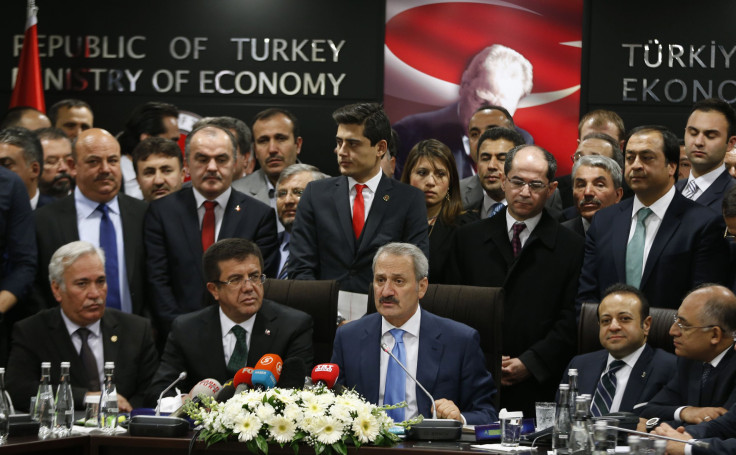President Abdullah Gul's Political Maneuver: Is His Decision To Approve Turkey's Controversial Internet Law Politically Motivated?

Turkish President Abdullah Gül defended his decision to approve a controversial law imposing government restrictions on the Internet Sunday, after receiving assurances from legislators that problematic stipulations in the bill would be amended. But, critics view the president’s decision as siding with Prime Minister Recep Tayyip Erdoğan and his ruling Islamic party (AKP), under investigation for corruption.
After leaked wiretaps and recordings of high-ranking Turkish government officials circulated on the Internet in mid-February that incriminated members of the government, Turkey’s parliament implemented a new law that allows authorities to block Web pages or entire websites without a court order, in hopes of defending the “sanctity of personal privacy.”
After the vote passed through parliament, all eyes turned to Gul, who had the power to veto the law. But he approved it because he said it was the lesser of two evils.
“I could have chosen the easier and more popular way and vetoed it,” Gul said. “But in this election atmosphere the government would most likely have passed it again in the same form, and I would then have had no constitutional choice but to sign it with no improvements. I chose the difficult path, hoping that I could make some improvements that could make it acceptable to me, and faced a lot of criticism,” he said.
Some parts of the Internet law Gul wants to rescind are:
1. Demanding that Turkey’s Telecommunications Board collect content of Web communications as well as IP addresses
2. Allowing the government to bypass the court system to ban Internet broadcasts
3. The transfer of personal information to the government
4. Establishing communication courts
The Internet law, which outraged many inside and outside Turkey, represents the increasing authoritarian rule of Erdogan and his party. During the anti-government protests in Istanbul’s Gezi Park last summer, Gul expressed displeasure over Erdogan’s handling of protests. While he was critical, many Turks wanted him to take a stronger stance. If Gul did not approve the law it would have been viewed as an affront to Erdogan, who would charge him with siding with the Gulen movement (unrelated to President Abdallah Gul), which Erdogan claims is behind the plot to overthrow him.
Gul is trying to balance his democratic credentials while protecting his political ambition. Many believe that he is eyeing the premiership as Erdoğan is barred from running for a fourth time. But, the prime minister may change party rules and if he does so, Gul does not want to run the risk of losing the next presidential elections.
© Copyright IBTimes 2024. All rights reserved.












